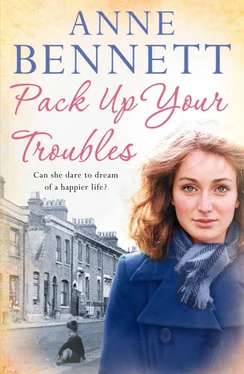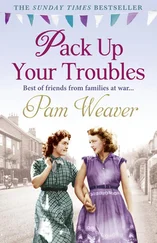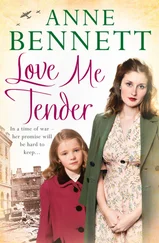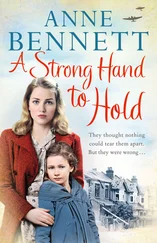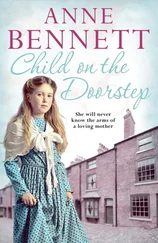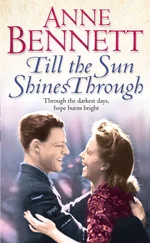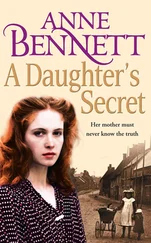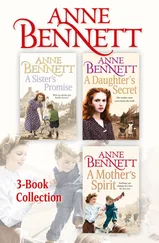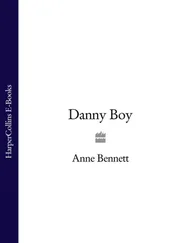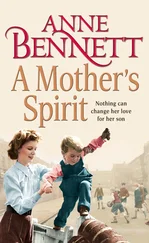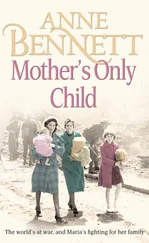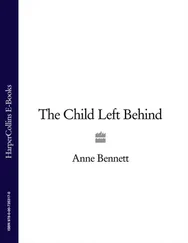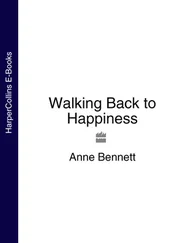
Copyright
Published by HarperCollins Publishers Ltd 1 London Bridge Street London SE1 9GF
www.harpercollins.co.uk
This edition published by HarperCollins Publishers 2016
Copyright © Anne Bennett 2000
First published in 2000 by HEADLINE BOOK PUBLISHING
Cover design © HarperCollins Publishers Ltd 2016
Cover photographs © Gordon Crabb (woman); John Topham /TopFoto (street scene).
Anne Bennett asserts the moral right to be identified as the author of this work.
A catalogue copy of this book is available from the British Library.
This novel is entirely a work of fiction. The names, characters and incidents portrayed in it are the work of the author’s imagination. Any resemblance to actual persons, living or dead, events or localities is entirely coincidental.
All rights reserved under International and Pan-American Copyright Conventions. By payment of the required fees, you have been granted the non-exclusive, non-transferable right to access and read the text of this e-book on screen. No part of this text may be reproduced, transmitted, down-loaded, decompiled, reverse engineered, or stored in or introduced into any information storage and retrieval system, in any form or by any means, whether electronic or mechanical, now known or hereinafter invented, without the express written permission of HarperCollins.
Source ISBN: 9780007547807
Ebook Edition © March 2016 ISBN: 9780007547814
Version: 2017-09-08
Dedication
I am dedicating this book to Denis
for the immense help and unfailing support
he has given me over the years.
Thank you.
Table of Contents
Cover
Title Page
Copyright
Dedication
Chapter One
Chapter Two
Chapter Three
Chapter Four
Chapter Five
Chapter Six
Chapter Seven
Chapter Eight
Chapter Nine
Chapter Ten
Chapter Eleven
Chapter Twelve
Chapter Thirteen
Chapter Fourteen
Chapter Fifteen
Chapter Sixteen
Chapter Seventeen
Chapter Eighteen
Chapter Nineteen
Chapter Twenty
Chapter Twenty-One
Chapter Twenty-Two
Chapter Twenty-Three
Chapter Twenty-Four
Chapter Twenty-Five
Chapter Twenty-Six
Chapter Twenty-Seven
Chapter Twenty-Eight
Chapter Twenty-Nine
Chapter Thirty
Acknowledgements
About the Author
Also by Anne Bennett
About the Publisher
ONE
Maeve Brannigan couldn’t believe she was actually leaving the little farm in Donegal where she’d lived all of her eighteen years. It had been worth the cajoling and pleading, her mother’s tears and her father’s bad humour that had made him moody and snappy with them all. She’d survived it all, as well as the old biddies in the parish, who’d prophesied that no good would come of it, and did she think she ought to go when, after all, she was such a grand help to her mother, for wasn’t the woman herself always saying so?
Maeve had been brought up to have manners and it had only been that innate politeness that had stopped her screaming abuse at the interfering old gossips. Did they think she didn’t know all that? She was the eldest of seven and even when Maeve had begun work in the grocery store in the town when she was fourteen, there had always been a list of chores for her at home.
Well, now it was the turn of Kate and Rosemarie, who at eleven and twelve years of age were well able for it. Maeve was sick of being at everyone’s beck and call; fed up with the isolated farm, and of the suffocating small town where everyone knew everything about you and yours. Her total social life revolved around church activities, and the weekly dance, held only in the summer months, where she met boys she’d known for years, as familiar to her as her brothers and just as exciting. Few of them had any ambition and were content to live in Ballyglen all their lives, and expected the wives they would eventually take to be satisfied with that situation too.
Maeve decided it wasn’t for her. But she wasn’t to go to Dublin, or ‘God forbid’ London, a desperate place altogether, her parents claimed, and where she knew not a soul. No, she was to go to Birmingham where Maeve’s mother, Annie, whose maiden name had been O’Toole, had a brother called Michael.
Maeve knew of her Uncle Michael, though she’d never met him. He’d been in Birmingham since early 1919, when he’d met and married his English wife, Agnes, in just a couple of months, and had never been home since. Maeve also knew that no obstacles had been put in the way of his leaving his home, but in fact the reverse. He’d served in the British Army in the Great War and had come back in late 1918, a bitter and disillusioned young man. Ireland was in disarray, the troubles at their height and rebel gangs roaming the country. His family, terrified he’d be caught up in it all, had encouraged Michael to accompany a neighbour catching the emigrant boat for England. He’d ended up in Birmingham and had got a job – a grand job he’d said, in a foundry. But he was still Annie’s little brother and she wrote him regular letters of the family, and now was sure Maeve could lodge with him to see how she liked the place. In fact Michael had written her a very long, encouraging letter. Not only could she stay with them and welcome, he said, he could even get her a waitressing job in a café. He knew the owner, a Greek man by the name of Dolamartis, a good Catholic, and they went to the same church. He’d told Michael his assistant was leaving. Jobs were hard to find, her uncle said, and Maeve couldn’t afford to be too choosy. Maeve had no intention of being choosy at all and at the mention of a job and place to stay, her parents’ resistance finally crumbled. Maeve was on her way.
They were all there that early spring morning with the mist still swirling around the hills, to put her on the little rail bus that ran at the bottom of Thomas Brannigan’s farm, to start the first leg of her long journey. She saw her mother holding little Nuala’s hand and dabbing at her eyes with her apron, her father, his face still in stiff lines of disapproval, and the others staring at her as if they couldn’t quite believe she was going. Maeve knew her father didn’t want her to go, in fact he dreaded it, and in a way she understood why. She knew she had a special place in her father’s heart, partly because she looked so like her mother and also because she was the firstborn. She also knew it had been her mother who’d persuaded her father to allow her to go, and if she hadn’t supported her, it would have been far more difficult.
The way he’d gone on, it was as if he expected her to be leapt on by every man in Christendom as soon as she left the farm. She knew the lads all had an eye for her; she wasn’t stupid. But her mother had talked to her, and anyway, she knew right from wrong. So though she felt sorry for her parents, she couldn’t wait to be gone.
Maeve watched until the group by the farm gate had become like small dots and then she settled into her seat with a sigh of contentment. Excitement fizzed inside her so that she could hardly sit still. She wished she could snap her fingers and be in Birmingham, where she was sure everything that was good awaited her.
She sustained the excitement all the way to Belfast, though the size and noise of the station unnerved her. The clatter of the enormous trains that seemed to hurl into the station to stop with a hiss of steam and a piercing screech and a whistle made her jump more than once. She left the busy Belfast station for the ferry, feeling apprehensive about the journey across the water.
Читать дальше
